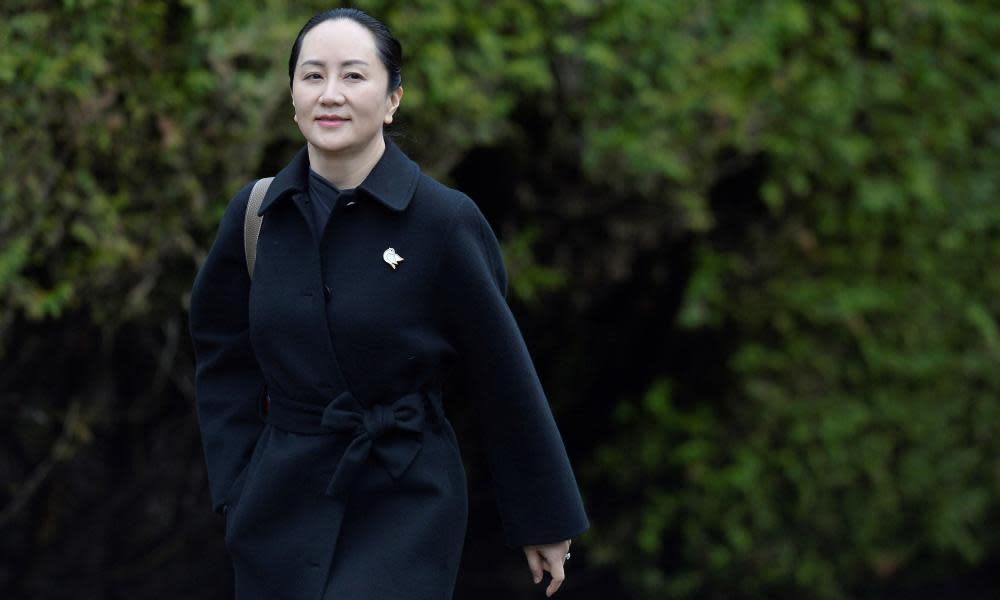Case to extradite Huawei executive Meng Wanzhou to US resumes

The legal battle between Washington and Huawei resumes this week when a Canada-based senior executive at the Chinese state-backed telecommunications firm reappears in a Vancouver court on Monday claiming the effort to extradite her to the US should be thrown out.
Huawei will claim an abuse of process, arguing the US government has provided Canadian authorities with partial and misleading evidence in an effort to show finance officer Meng Wanzhou tried to circumvent US sanctions on Iran 10 years ago.
Meng, the daughter of the company’s founder, will appear in court on Monday for the first time in months after the Canadian government ordered her to remain in Vancouver until her extradition is settled.
The Chinese government has condemned the US extradition drive as nakedly political. Huawei’s drawn out legal fight aims to show the US government it has no hope of securing Weng’s extradition for many years, and increase political pressure on the Canadian government to acknowledge its justice system is being used as part of Donald Trump’s trade battle with Beijing.
The US government allege Meng breached US sanctions by covertly trading with Iran using a Huawei front company Skycom.
Two Canadian citizens – Michael Kovrig, a former diplomat, and Michael Spavor, an entrepreneur – have been arrested in China in what is seen as a tit for tat reprisal. It is unlikely the pair will be released unless Canada takes the unusual step of intervening in the extradition.
Lovring’s wife has called for Meng’s release. Chinese diplomats in Canada have also warned relations between the two countries are worsening due to the episode.
Related: The tensions over Huawei are not about trade, but about global supremacy | Laurie Macfarlane
In the new court papers, Meng’s defence team will argue that the US government committed a fraud by providing Canada with a misleading record of the case against her when they sought her arrest on fraud and conspiracy charges in Vancouver in December 2018.
The US government claims the 48-year-old finance officer misled an HSBC executive in August 2013 about Huawei’s relationship with a Skycom subsidiary accused of violating American economic sanctions against Iran.
According to prosecutors, HSBC rested on her false assurances to continue financing Huawei, using dollar transaction, placing the bank at risk of prosecution and fines by the US.
Court papers submitted by Meng’s lawyers claim the US government only provided Canadian authorities with 4 of the 16 slides used by her at a powerpoint presentation to reassure HSBC. The full set of slides, her lawyers claim, show she told HSBC bankers about Huawei controlling the Skycom bank account in Iran.
As a result HSBC had the information it needed to assess the risk of financing Huawei.
The allegation is one of three lines of attack the Huawei chief financial officer’s lawyers plan to pursue in the coming months to convince the British Columbia Supreme Court justice overseeing the case that Meng’s rights have been violated.
Meng was detained in December 2018 after flying to Vancouver from Hong Kong en route to a business conference in Latin America. She will also claim after she was arrested at Vancouver airport she was subject to a three-hour interrogation without lawyers.
The preliminary hearings today come ahead of a fuller hearing in February next year and will determine the legal defences that Meng’s lawyers will be entitled to mount to resist her extradition.


